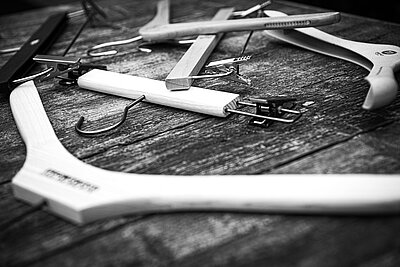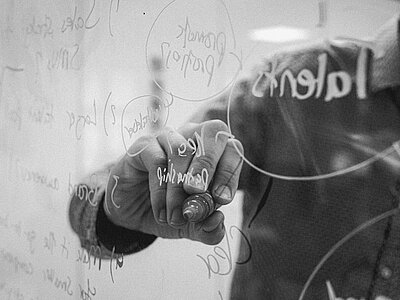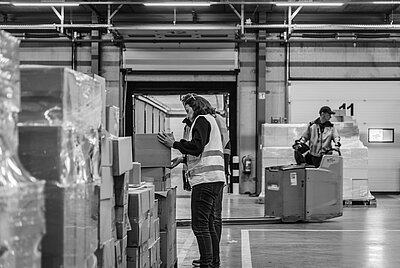It’s not hard to see why plastic has become a packaging headache for many retailers. The challenge of providing sustainable packaging alternatives while maintaining suitability for products and engaging with consumers over these choices is a tough one.
But with so many misconceptions amongst consumers on the environmental impact of plastic packaging and supply chain fluctuation with cardboard and paper availability, is there a different way for retailers to educate and inform consumers about packaging choices and to make changes that can improve business stability?
There are always two sides to a story
Consumers are more conscious than ever about their own environmental impact but also that of their favoured retailers. For some consumers, it can be the difference between them choosing you or a competitor who has better green credentials.
That’s why it’s essential to get a clear picture of the overall impact your plastic packaging has on the environment and to communicate this to your target audience. It’s easy for consumers to assume that cardboard or compostable packaging is the better choice as it’s widely recycled and quick to biodegrade. But it’s not as simple as that.
Back in 2010, UK-based organic vegetable box delivery company, Riverford, estimated that switching to plastic boxes instead of cardboard would reduce their carbon footprint by 70%. That’s because they looked at the entire lifecycle of their cardboard delivery boxes and assessed the huge amounts of carbon that go into the production of cardboard and the biodegrading of it when it’s not recycled properly.
The planting and cutting of trees, creation of pulp and conversion into packaging materials is incredibly carbon intensive. And in 2018, cardboard and paper was the highest waste packaging material in the EU (31.8 million tonnes) compared with 14.8 million tonnes of plastic. Even recycling cardboard and paper comes at a huge environmental cost.
There’s an opportunity here for retailers to talk to customers on the true picture of sustainable packaging and help use to it to convert customers whose own misconceptions may be influencing their shopping habits.
Plastic for long-term use
Plastic has its most damaging environmental impact when it’s sent to landfill, incinerated or it ends up in the ocean and it can be problematic as packaging - with two-thirds of plastic waste coming from packaging, But, during production it can use up to 40% less energy compared to paper and cardboard and can have a longer lifecycle before it is disposed or recycled.
Unilever’s ‘Less plastic. Better plastic. No plastic.’ strategy; acknowledges that it’s not just the elimination of plastic that will make the difference but being smarter with the plastic we use and how we use it.
Choosing plastics carefully can reduce the amount of single-use plastic heading to landfill and create long-term reusable packaging that is cost-effective too. And some are finding ways to reuse packaging that is floating in the oceans and give it a second life. Parley Ocean Plastic is created from upcycled marine plastic waste that is collected from remote islands, beaches and coastal communities, baled and then sent to Parley supply chain partners. There it is shredded and reworked to become high-performance polyester yarn, which is then used to create sportswear. Ocean plastics are also often sourced and added to retail plastic packaging too.
With recent supply chain issues to paper and cardboard packaging, making a switch to long-term plastic packaging could be a viable solution that you hadn’t considered.
So where can you start if you want to make some changes?
Explore alternatives with your suppliers
Speak with your supplier or your Worldpack account manager to begin researching which plastic packaging could be better for the environment and explore how you might make changes to your current packaging to support this shift. If you have multiple pieces of packaging within your retail landscape, start exploring which are your most environmentally harmful. The European Plastics Pact and Zero Waste Europe have helpful information and resources on how to start making changes and things to consider when thinking about your plastic impact and choices. There are pros and cons to both from a sustainability point of view and Worldpack can provide neutral and balanced information so you have an informed choice of what will work best for your business.
Ask your customers
Find out how your customers are using the packaging and what’s happening to it once it arrives at their house or workplace. If it’s heading straight into the bin and then to landfill, it’s a great opportunity for you to make a difference to how much impact your packaging is making. Just knowing this small detail could transform how you think about your packaging and inform the type of packaging you can use moving forwards.
Communicate your changes clearly to your customers
If you’re making changes to your packaging and opting for plastic, share the information that changed your mind with your customers. Make it clear why you’ve made the decision and what the environmental benefits behind it are. No decision is perfect, but if it’s a better choice than before, it’s important to communicate that clearly so your customers know you are focussed on your impact and making smarter choices – even if that means plastic. A better, more informed, approach to plastic lets retailers engage with customers better and maximise impact – influencing business approaches and customer’s attitudes towards wiser plastic use.
If you’re ready to start considering your alternative packaging options, then we’re here to help. Send us an email at online@worldpack.eu or ring us on +31(0) 88 494 20 80. Together we can create a sustainable packaging future.


